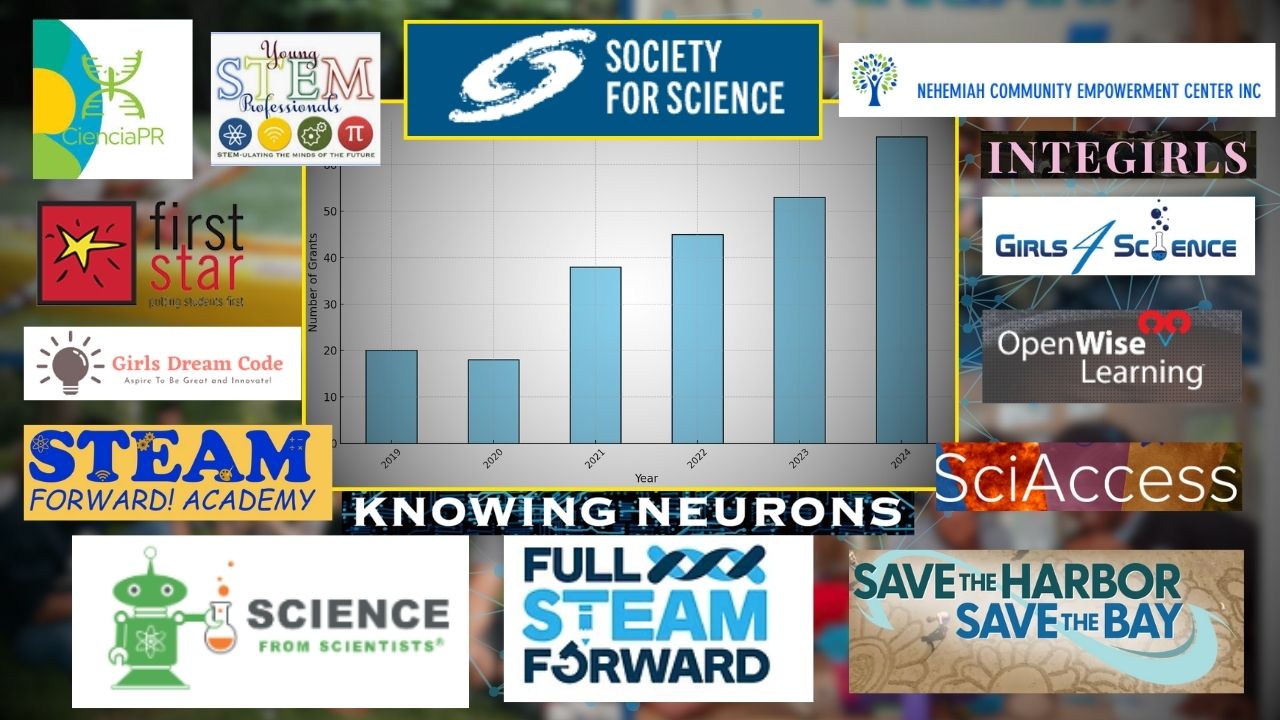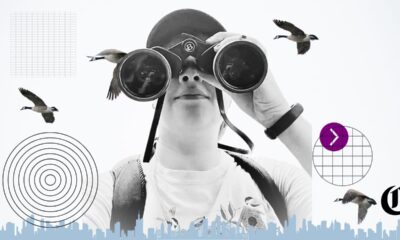Civic Science Observer
Visualizing Society for Science’s STEM Action microgrants across the U.S. — Organizations in CA, TX, NY, FL, and MA are among the awardees

Since its inception in 2016, the STEM Action microgrant program by the Society for Science non-profit has provided over $1.15 million to 144 organizations. Society for Science notes that “these grants support grassroots, mission-driven organizations that expand STEM opportunities for all.” Maya Ajmera, President and CEO of Society for Science adds that “these projects demonstrate the power of community-driven science to inspire and empower individuals of all backgrounds.”
The diversity of funded organizations reflects the program’s wide reach. Recipients include schools, nonprofits, and community-based initiatives tackling a variety of STEM-related challenges. These grants have supported interactive STEM education in classrooms, environmental conservation efforts, and mentorship programs that increase diversity in STEM fields, tailoring engagement strategies to the unique needs of different communities. Awardees are able to apply for up to $5,000 in funding and renew for up to three years. Support for Society for Science’s STEM Action microgrant program has come from organizations such as the Simons Foundation, Regeron, and The Eli and Edythe Broad Foundation.
A look at Massachusetts
In analyzing the organizations that have received the STEM Action microgrants from publicly available information in 2019, 2020, 2022, 2023, and 2024, three have been based here locally in Massachusetts:
- Science from Scientists (Bedford, MA): Awarded $2,500 in 2019 and $5,000 in 2020. The organization works on teaching and inspiring the next generation of scientists by improving STEM literacy. See our 2023 interview with the founder Erika Angle on CivicSciTV’s Changemakers program.
- Full STEAM Forward, Inc. (Boston, MA): Awarded $4,000 in 2022 and $5,000 in 2023. The organization works in promoting equity in science education by engaging young girls from under-resourced minority populations in STEAM-based programs.
- Save the Harbor/Save the Bay (Boston, MA): Awarded $4,000 in 2022 and $5,000 in 2023. The organization’s mission is to restore and protect the local marine environment and its environmental education programming engages thousands of young people and community groups.
Together, these organizations received approximately 3% of total grant dollars from the program ($25k out of the ~$880k awarded through the program in 2019, 2020, 2022, 2023, and 2024).
No organizations based in Massachusetts received microgrants from the funding program in 2024.
Additional Insights
Our ongoing analysis of the STEM Action microgrants shows the following thus far:
- California leads with 29 grants (14.4% of all grants since 2019), followed by Texas with 17 (8.4%), Florida with 13 (6.4%), Maryland with 12 (5.9%), and New York with 11 (5.4%). Together, these five states account roughly for 40% of all grants distributed for the years under review. These percentages are calculated from a total of 202 grants awarded that have been identified thus far. See the heatmap below.
- The 2024 cycle marks the largest single-year award total with $320,500 distributed between 66 organizations and many being first-time awardees. Approximately 50% (34 organizations) are returning grantees.
- Organizations such as An Open Book Foundation in Washington, D.C.; ANGARI Foundation in West Palm Beach, Florida; Pink Space Theory in Woodbridge, Virginia; Rosie Riveters in Arlington, Virginia; and See3D, Inc. in Columbus, Ohio, and a few others are returning grantees.
- Among the 2024 new awardees is Ciencia Puerto Rico based in San Juan, Puerto Rico which received $5,000 to conduct listening sessions to understand the concerns of Puerto Rican communities regarding climate change.” Another is First Star in Los Angeles which is using its microgrant to help combat the underrepresentation of foster care youths in STEM fields. Watch our 1 min clip featuring First Star CEO Lyndsey Collins breaking down the numbers on college enrollment in the foster care system during an interview on CivicSciTV.
See the full 2024 awardee list here.

About the analysis: We reviewed publicly available data from the Society for Science’s STEM Action microgrant program for the years 2019, 2020, 2022, 2023, and 2024. This included examining the individual year grant pages and any available press releases to identify funding recipients, amounts, and descriptions. We categorized the grants awarded by location, type, and focus areas of their work and other dimensions some of which are showcased above. This is part of our ongoing broader visualization of the civic science funding landscape.
Fanuel Muindi is a former neuroscientist turned civic science ethnographer. He is a professor of the practice in the Department of Communication Studies within the College of Arts, Media, and Design at Northeastern University, where he leads the Civic Science Media Lab. Dr. Muindi received his Bachelor’s degree in Biology and PhD in Organismal Biology from Morehouse College and Stanford University, respectively. He completed his postdoctoral training at MIT.

-
 Audio Studio1 month ago
Audio Studio1 month ago“Reading it opened up a whole new world.” Kim Steele on building her company ‘Documentaries Don’t Work’
-
Civic Science Observer1 week ago
‘Science policy’ Google searches spiked in 2025. What does that mean?
-
Civic Science Observer1 month ago
Our developing civic science photojournalism experiment: Photos from 2025
-
Civic Science Observer1 month ago
Together again: Day 1 of the 2025 ASTC conference in black and white
Contact
Menu
Designed with WordPress























